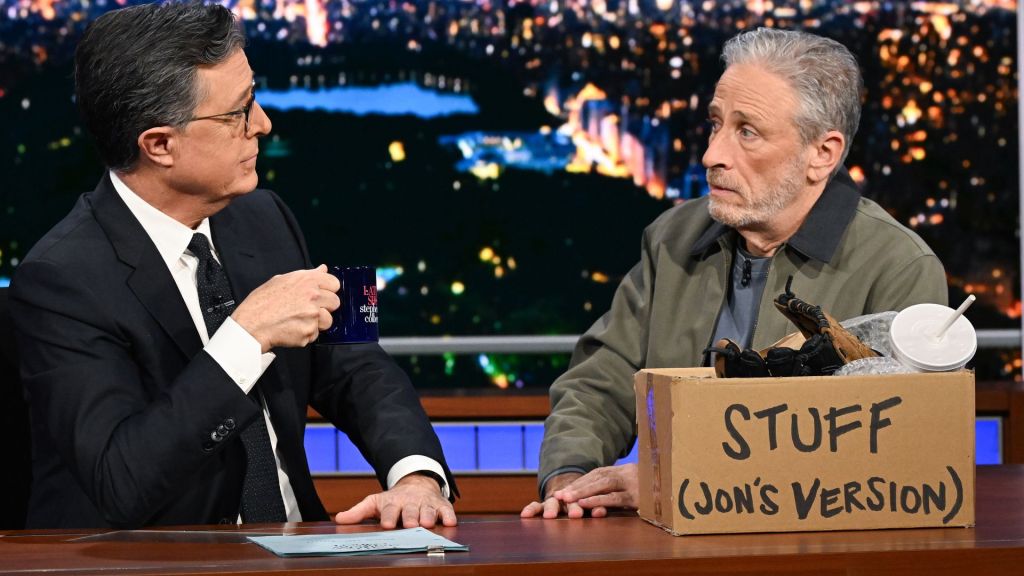
Commentary
-
Our commentary partners will help you reach your own conclusions on complex topics.
Hey everybody, Peter Zeihan here coming to you from Wanaka, New Zealand and his video goes out to Fly, who we just met on the trail. Thanks for the happy birthday message. We’re gonna talk about Russian cybercrime, which is something that has been kind of the bogeyman in the room when it comes to issues that are related to Ukraine and the general collapse of relations. You know, this is a former superpower and a lot of the intelligence apparatus is still, in some ways, intact.
You take that kind of scale, you throw it against the civilian system, and … . But we haven’t seen that. It’s been a year into the war, and it hasn’t happened yet. So there’s kind of three things going on simultaneously. Two that are really simple; one, that’s a little bit more wordy. So number one, practice. The Russians have been hitting certain NATO countries over the last several years that they have found annoying for whatever reason with Estonia, a country with a population of less than a million and a half, being at the forefront. Which means that Estonia, tiny Estonia, has probably the best counter cyber in the world. They’ve moved most of the government services online, they’re relatively hack-proof, and the Estonians have been very forward in cooperating with other European countries, most notably Ukraine, in building up their own cyber defenses. So number one, experience.
Number two, time. The Russians have been pulling this for years and so everyone has had a bit of exposure. And we’re not nearly as exposed today as we were five years ago, or 10 years ago. And the fact that we’re now a year into the Ukraine War and everyone realizes that the Russians are active, a lot of companies, a lot of countries have been taking a lot more forward stance when it comes to cyber defense.
But the third one deals with kind of the backdrop. So in the United States, when cyber first became a thing in the 1980s, Reagan was president and he made the executive decision that we would have no cyber defense; that all cyber offense would be concentrated under the National Security Council, or sorry, the NSA National Security Agency. And they would basically go out and hack everybody every day that wasn’t one of the close allies — New Zealand, Australia, the United Kingdom, Canada — everyone else would be hacked every day. They learned the architecture, put in backdoors … make a list of all the passwords, blah blah blah blah blah. So if we ever had a war, they could just drop the hammer and go.
The downside of that is there was no national defense. And even with the NSA, they only defended themselves, so everyone is really on their own. And that’s the weakness of the American system by far. So if we ever get in a real fight, you know, the power is going to go out, the water is going to stop, the stock market’s going to crash. But then the NSA will come in and just obliterate the opposing side, and they will never have electricity again. But we’re not in a hot war right now. We’re in kind of this middle ground.
And so the NSA strategy has been to keep dry powder, keep dry powder, keep dry powder. That changed a little bit under Donald Trump. Donald Trump gets a lot of crap from a lot of people, myself included, for a lot of things that are very well deserved. But one of the most interesting things that he did from my point was on cyber. And after he was elected, after [sic] that first election, he ordered the NSA to send cease-and-desist letters to the Russian hackers working for the Russian government, with personal details included in the letter so they knew exactly who was in play there. Okay, so put that to the side.
The Russian hacking system is not like ours. There is a state agency, there is the bot arm that has really been playing with religious fanatics and environmental activists, and anti-vaxxers. So basically, if you think that nuclear power is bad for the environment or if you think that COVID has been a conspiracy, or if you [don’t think] Donald Trump lost the last election, Russian hackers have been very active in the bot farm in all three of those spaces. Also, Blue Live Matters, Black Lives Matters, if you ever find yourself at the protest for the wrong one that you were trying to go to, that was probably the Russians. But that’s bots, that’s fraud.
Most of the cyber capacity in Russia is private. It’s organized crime groups who are trying to crack your credit cards and gain control of your bank account, or shut down a hospital in order to get a ransom. It’s a different sort of system. Well, when the war started, what we found out is that the state power in Russia wasn’t as much as we thought and the cyber was more. And the second thing that happened is the Biden administration very unofficially dropped the hammer on a lot of those groups. And so a cyber group that is crime-oriented doesn’t have the same sort of defense capability as a state. And the state group turned out to be not as hard.
So very early in the war, the first couple of weeks, a lot of this got shattered by U.S. cyber capabilities — unofficially, of course. And that has made it very difficult for them to do more than kind of pick at the edges of the Ukrainian system or the Western system. So take that for what it is. It’s not that everything is hunky dory. It’s that the U.S. government actually is using some of those tools in a very real way that we haven’t seen before in the last 40 years. Alright, that’s it for me. Catch you guys later.
-
Hurricane Helene hits US coast, Appalachia and beyond
Hurricane Helene hit Florida and Georgia overnight between Sept. 26 and 27 as a Category 4 hurricane, and accompanying storms will continue reaching deeper into the continental United States today. Dangerous flash flooding from the hurricane, known as storm surge, was some of the worst flooding that the Tampa Bay area has ever seen, and… -
Israel holds upper hand against Lebanon, Hezbollah and Iran
On Wednesday, Sept. 25, Hezbollah launched a ballistic missile at Tel Aviv in retaliation for Israel’s explosive pager attack that blew up devices across Lebanon. Although Israel’s defense systems intercepted the surface-to-surface missile, the attempted strike on Tel Aviv marked a significant escalation by Hezbollah. Since the siege on Gaza began, shortly after the Oct. 7, 2023,… -
The Sinaloa Cartel civil war
Fears of a civil war within the Sinaloa Cartel are growing as violence between competing factions within the cartel continues. The Mexican Army has dispatched around 600 elite troops to Sinaloa to help quell those fears, in addition to roughly 2,200 regular soldiers and National Guard. Watch the above video as Straight Arrow News contributor… -
New Ukrainian weapons hit Russia where it hurts
Ukrainian drones struck a major Russian ammunition depot, triggering a massive explosion that was captured on camera. According to the Ukrainian military, 2,000 tons of munitions had arrived at the depot before the attack. Over the past two years, Ukraine has significantly increased its domestic drone production, allowing it to scale up attacks on military… -
Weighing social costs vs. economic benefits on immigration
Global human migration is one of the defining elements of our current historical era, according to the United Nations. Migrants face both the incentives to leave — forced out by climate change, crime and corruption, extreme poverty or violence — and incentives for where to go, based on available job opportunities and so on. Migration…
Latest Stories
-
 Dept. of Defense
Dept. of Defense
A return to the Cold War? UK poised to house US nuclear weapons yet again
-
 Getty Images
Getty Images
Melania Trump backs ‘Take It Down Act’ targeting AI deepfake, revenge porn
-
 Getty Images
Getty Images
Top FBI official in NY retires amid apparent conflict with Trump admin
-

How US crypto holdings compare to other nations
-
 Getty Images
Getty Images
Israel proposes alternative plan for hostage deal with Hamas
Popular Opinions
-
In addition to the facts, we believe it’s vital to hear perspectives from all sides of the political spectrum.
Latest Opinions
In addition to the facts, we believe it’s vital to hear perspectives from all sides of the political spectrum. We hope these different voices will help you reach your own conclusions.
The opinions published in this section are solely those of the contributors and do not reflect the views of Straight Arrow News.





















Latest Commentary
We know it is important to hear from a diverse range of observers on the complex topics we face and believe our commentary partners will help you reach your own conclusions.
The commentaries published in this section are solely those of the contributors and do not reflect the views of Straight Arrow News.
Dr. Frank Luntz
Pollster and Political Analyst‘Biased’: What Americans think of ‘mainstream media’
‘Getting rid of them’: Americans discuss Trump and immigration
‘Woke’: Why some Biden 2020 voters backed Trump in 2024